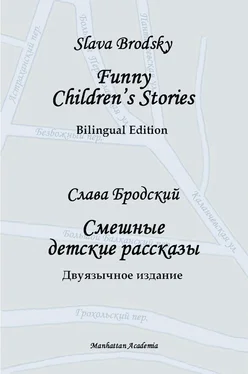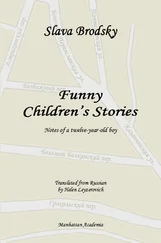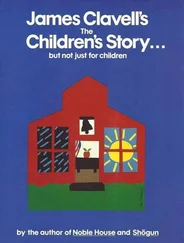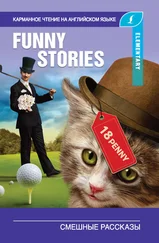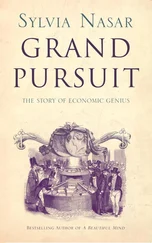And I forget that it is dark outside. I think only about the wind and the snow and do not even realize where I am going. But since I go there almost every day, my legs carry me where I have to go. And sometimes I ask someone, “Is there anything in the world that is worse than when it is dark, cold, snowing, windy, you are only twelve, and you are on your way to school early in the morning?”
But today, as I was going to school, I suddenly remembered the summertime and the river. And I remembered lying on the hot sand.
I lie on my stomach, with my head resting on my arms. I feel a little cold because I swam for too long and the water in the river was cold. And the water is dripping down from my nose. But then it stops dripping and I am fully dry. And I start feeling hotter and hotter. And when I get too hot, I get up and run to the river again.
As I was remembering all that today on my way to school, I thought that next time I will not run to the river, even when I become really hot. I will lie on the hot sand under the hot sun for a long, long time. I will bake myself under the sun. I will let its heat fill me completely. And I will lie for as long as I can stand it.
And when I feel that I can no longer be under the sun, I will still lie a little longer. Because I want to be hot. I want to be hot all the time.
Also today I was thinking about far away hot countries where there is no winter and it is always warm. And most importantly, we were told in school that such hot countries do exist. We were told that it is never cold in those countries but that life is not very happy there.
But I would go there anyway. I do not care. Because I cannot imagine how it could be bad where it is never cold. As for life being not very happy there — I would learn to live with that.
Слава Бродский большую часть жизни прожил в России. Получил математическое образование в Московском государственном университете. Сочетал работу в промышленности с исследованиями в области прикладной математической статистики. Автор ряда книг в этой области.
В студенческие годы он начал заниматься живописью. Его ранние живописные работы относятся к периоду нонконформизма в России (60-е — 80-е годы). В начале 80-х годов начал писать короткие рассказы, которые в то время опубликованы не были.
С 1991 года Слава Бродский живет в Соединенных Штатах Америки. Работает в финансовой индустрии Манхеттена.
Продолжая занятия живописью, он начал первые эксперименты в своей домашней керамической мастерской. Вскоре после этого искусство керамики стало составлять основу его художественного творчества.
В 2004 году Слава Бродский начал свою писательскую карьеру. За прошедшие с этого момента годы были опубликованы такие его книги как «Бредовый суп», «Релятивистская концепция языка», «Исторические анекдоты», «Смешные детские рассказы», «Большая кулинарная книга развитого социализма».
Слава Бродский — вице-президент компании “MetLife”. Он живет со своей женой в Миллбурне (Нью-Джерси). Его вебсайт www.slavabrodsky.com.
Slava Brodsky lived most of his life in Russia. He got his mathematician’s diploma from Moscow State University. Combined work in the industry with research in the field of applied mathematical statistics. He is the author of several books in this field.
In his student years, he was engaged in painting. His early paintings belong to the period of non-conformism in Russia (60’s — 80’s). In the beginning of 80’s, he began writing short stories. However, they were not published at that time.
In 1991, Slava Brodsky moved to the United States of America. Since then he has worked in Manhattan's financial industry.
Continuing painting, he began his first experiments at his home ceramis workshop. Since then, the art of ceramics has been at the core of his artistic creativity.
In 2004, Slava Brodsky began his career as a writer. Since then, he has published several books in Russian: “Delirious soup”, “The Linguistic Concept of Relativity”, “Historical Anecdotes”, “Funny Children's Sories”, “Grand Culinary Book of Developed Socialism”.
Slava Brodsky is a Vice President of MetLife. He lives with his wife in Millburn, New Jersey. His website is www.slavabrodsky.com.

Pood is a Russian unit of mass approximately equal to 36 international pounds.
Offensive remarks toward people other than Russians (like the one made by the principal about pygmies) are quite common in Russia.
Another offensive remark — “big nose” — towards Jewish people in Russia.
It seems that the boy and his parents lived together in the same room.
One kopeck is the smallest Russian coin. For comparison: the cost of a local call from a public phone was 15 kopecks at that time.
The father of the boy was obviously making fun of some propaganda slogan of that time.
Romantic relations between students and young teachers were (and probably are) quite common in Russian schools.
A two is a non-passing grade in the Russian “two to five” school grading system, comparable to an F in the American grading system. A three is a minimum passing grade. A four is a good passing grade. A five is the highest grade, comparable to an A in the American grading system.
One meter is a little bit longer than one yard.
Russian children often call middle-aged women aunt.
The Ukrainian language is pretty close to Russian. That is why for many Russians, Ukrainian sounds like broken Russian.
All private mail in Soviet Russia could be opened and inspected by KGB agents.
In Soviet Russia, a knock on someone’s door in the middle of the night most likely meant an arrest.
Being considered an educated person was neither honorable nor safe in Soviet Russia. For this reason, it was a shame to get good grades in school.
In Soviet Russia, almost everyone was under the impression that women could not and should not play soccer. This opinion was supported by the Soviet law prohibiting women from playing the game.
Тhe boy’s dad, obviously, meant to imply a strong possibility that either the little kid or his father might be, one day, imprisoned.
Читать дальше
